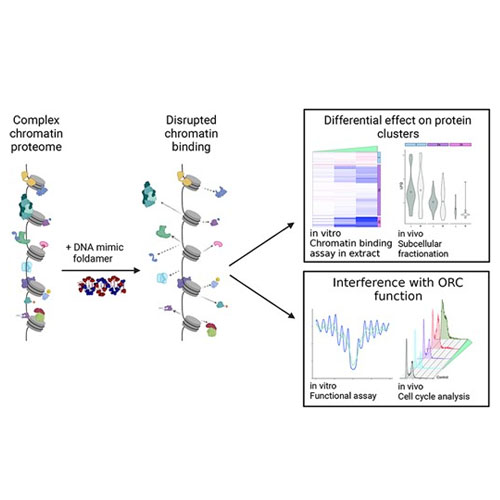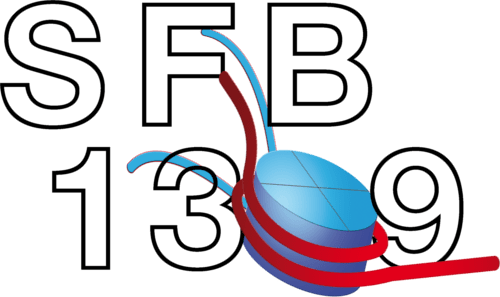DNA mimic foldamers affect chromatin composition and disturb cell cycle progression
2023-08-31
Vera Kleene, Valentina Corvaglia, Erika Chacin, Ignasi Forne, David B Konrad, Pardis Khosravani, Céline Douat, Christoph F Kurat, Ivan Huc, Axel Imhof
Nucleic Acids Research, gkad681, 2023
The use of synthetic chemicals to selectively inter- f ere with c hromatin and the c hr omatin-bound pr o- teome represents a great opportunity for pharma- cological intervention. Recently, synthetic foldamers that mimic the charge surface of double-stranded DNA have been shown to interfere with selected protein–DNA interactions. Ho we ver, to better under- stand their pharmacological potential and to impr o ve their specificity and selectivity, the effect of these molecules on complex chromatin needs to be inves- tigated. We therefore systematically studied the influ- ence of the DNA mimic foldamers on the chromatin- bound proteome using an in vitro chromatin assem- bl y e xtract. Our studies sho w that the foldamer effi- ciently interferes with the chromatin-association of the origin recognition complex in vitro and in vivo , which leads to a disturbance of cell cycle in cells treated with foldamers. This effect is mediated by a strong direct interaction between the foldamers and the origin recognition complex and results in a failure of the complex to organise chromatin around replica- tion origins. Foldamers that mimic double-stranded nucleic acids thus emerge as a powerful tool with designab le f eatures to alter c hromatin assemb ly and selectively interfere with biological mechanisms








